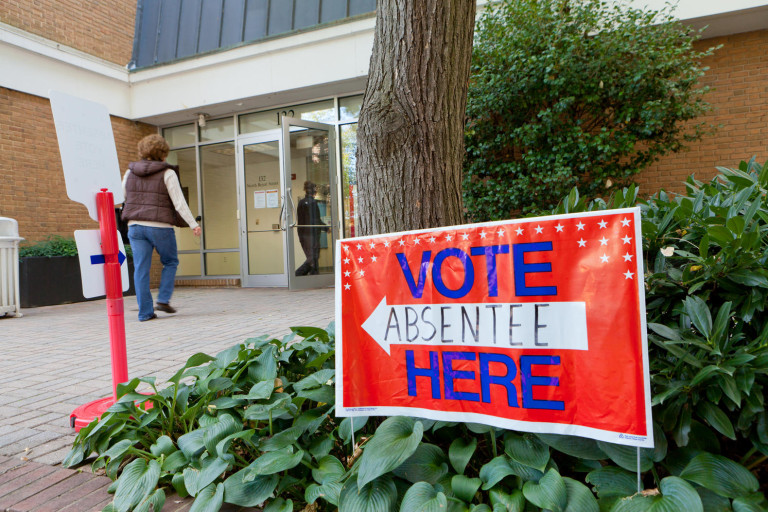The New Hampshire first-in-the-nation primary on Feb. 9 kicks off a long election season with many opportunities to cast a ballot on a national, state, and local level; however, engaging in one’s civic duty may seem like a daunting task when living abroad. Each one of the 2,276 students of American citizenship currently enrolled at McGill University is eligible to vote despite studying in Canada, but the process by which to do so is by no means intuitive. If an American citizen is planning on participating at all in this election cycle, now is the time to register to vote and request absentee ballots.
The participation of absentee voters is essential to the democratic process. The 18-24 age bracket is notorious for contributing to the lowest voter turnout of all. In 2012, only 38 per cent of those who were eligible actually voted. It is the responsibility of young voters, even those far from home, to stay engaged with issues that matter: The 2016 presidential election must not follow this trend.
By registering as an absentee now, one’s status will be documented for any upcoming election. The key to understanding the process is knowing the resources available within a given period prior to an election. The primaries and caucuses will decide the nominee for the Democratic and Republican parties by the end of July. Depending on when your home state holds its primary, the deadline to register may have already passed, or is otherwise quickly approaching. You only needs to register once, but it is required before being able to vote. So, request an absentee voter registration form as soon as possible to ensure less future stress, and to start receiving your ballots.
The process is made significantly easier with the help of online resources available at the click of a button, providing no excuse not to approach absentee voting. The Federal Voter Assistance Program (FVAP) and Votefromabroad.org offer any form needed to register and request an absentee ballot. Filling out and mailing a Federal Post Card Application, a form standard for every state and available on FVAP.gov, both registers and allows us to automatically receive a ballot for every upcoming federal election. Votefromabroad.org offers the same service, but with state and local election ballots included. Information on every state’s deadlines and election dates can be found on the Vote from Abroad website by selecting from a drop-down menu. Once the ballot has been filled out, one can download a free, postage-paid envelope from FVAP.gov, and either take it to the nearest Canada Post or drop it off at the US consulate in Montreal. Consulates and embassies around the world offer this absentee ballot mailing service, and can also provide in-person assistance with the process—just one more way voting from abroad is made easy.
Remaining engaged in domestic politics from abroad is easier than one would anticipate. Groups like Democrats Abroad and Republicans Overseas exist in chapters all over the world for the purpose of connecting Americans to their political organizations, thereby reducing the obstacles to being an informed constituent. On McGill’s campus, Democrats Abroad at McGill not only assists students looking for answers about absentee ballots, but also hosts events related to politics, such as streaming the debates of both parties. In the 2012 cycle, alternative voting—mainly absentee and early voting—comprised 32.7 per cent of all ballots cast.
Though some American students may have just started at McGill, and so will not be in the country for the next president’s first term, they have the opportunity to impact the results of other levels of government. Individual state and local elections are just as important as presidential races—if not more so. These generally happen in the early fall. While it often feels that voting in a non-swing state is a pointless and wasted act, this is simply not the case when considering the numerous other elected officials democratically selected in your state. Furthermore, if voting in one of the 26 states that allow for ballot initiatives or referenda, who have the unique opportunity to participate in directly voting on legislation.
All American students abroad have a stake in the upcoming presidential election—especially if they are considering returning to live and work after graduation. Given the ease of registering to vote, there is simply no excuse for failing to do so.










